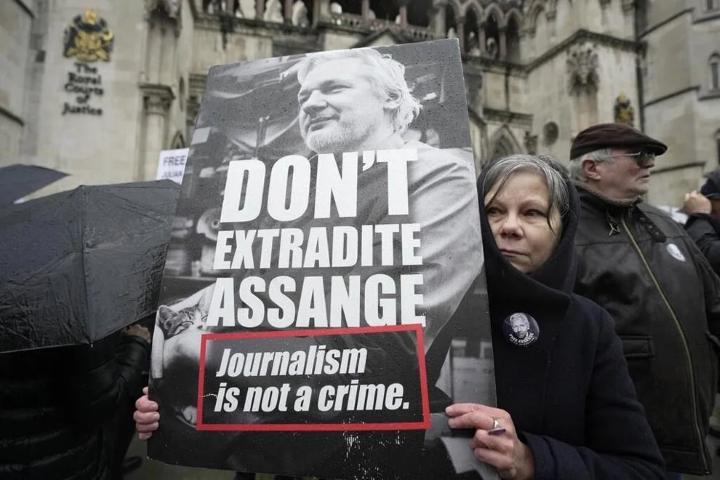
FILE - A London court is due to rule whether WikiLeaks founder Julian Assange can challenge extradition to the United States on espionage charges.. (AP Photo/Kin Cheung, File)
In a London court session scheduled for Tuesday, a decision will be made regarding whether WikiLeaks founder Julian Assange will be granted one final opportunity to contest his extradition to the United States. Two judges in the High Court are expected to deliver a verdict that could potentially conclude Assange's protracted legal battle or prolong it further.
If Assange is unsuccessful in obtaining the right to appeal, his legal team is concerned that he may be promptly extradited to the U.S. to face charges. However, they intend to petition the European Court of Human Rights to prevent any such transfer.
Assange, aged 52, is facing indictment on 17 counts of espionage and one count of computer misuse related to the publication of classified U.S. documents on his website nearly 15 years ago. U.S. prosecutors allege that Assange assisted U.S. Army intelligence analyst Chelsea Manning in the theft of diplomatic cables and military files, subsequently published by WikiLeaks.
During a recent two-day hearing, Assange's legal representatives argued that he acted as a journalist exposing U.S. military misconduct in Iraq and Afghanistan. They contend that sending him to the United States would subject him to a politically motivated trial and pose a risk of a "flagrant denial of justice."
Conversely, the U.S. government maintains that Assange's conduct surpassed the bounds of journalistic activity, endangering lives by actively soliciting, stealing, and indiscriminately disseminating classified government documents.
Assange, an Australian computer expert, has been incarcerated in a high-security British prison for the past five years. His family and supporters assert that his physical and mental well-being have deteriorated over the course of more than a decade of legal battles, including his time seeking refuge in the Ecuadorian Embassy in London from 2012 to 2019.
Stella Assange, who married the WikiLeaks founder while he was in prison in 2022, insists that Julian is a political prisoner deserving of release.
Assange's legal team anticipates that he could face a maximum sentence of 175 years if convicted, although U.S. authorities have suggested that the actual sentence would likely be shorter.















